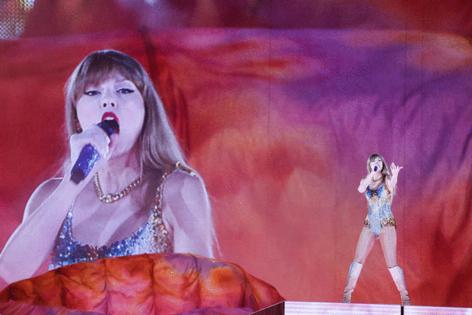States race to restrict deepfake porn as it becomes easier to create
Published in News & Features
After a 2014 leak of hundreds of celebrities’ intimate photos, Uldouz Wallace learned that she was among the public figures whose images had been stolen and disseminated online.
Wallace, an actress, writer and social media influencer, found out the images were ones her ex had taken without her consent and had threatened to leak.
Over the next few years, Wallace spent loads of money paying private companies to take down the images, she said. It wasn’t until later that she found out that those same photos had been used to make fake pornographic images of her.
“It’s just ridiculous the amount of time that people have and how much they’re profiting from these kinds of things,” Wallace told Stateline. “For them to sit there and create so much fake content of someone that clearly doesn’t want anything of that sort? Without consent? It’s just crazy to me.”
Mortified, Wallace was reluctant to share her story — at first. But in 2022, she went public with it and now she heads a nonprofit organization, Foundation Ra, that supports people who have become victims of manipulated or artificial intelligence-generated sexual images.
“I thought, ‘At what point is somebody going to do something about this?’” she asked. “And that’s when I decided to share my story and try to change the law.”
As more people, including minors, become victims of deepfake pornography and the industry that’s growing out of it, state lawmakers are pursuing legislation to deter the unauthorized creation and dissemination of digitally altered images.
Deepfakes — digitally altered photos and videos that can make someone appear to be, or be doing, just about anything — have proliferated on the internet. Examples range from simple face swaps done using readily available software to a person grafting Tom Cruise’s face and voice onto their body for content on a TikTok account.
In 2023, the total number of deepfake videos online was 95,820, up 550% from 2019, according to a report by Home Security Heroes, a group that researches best practices for online security. Pornography made up 98% of them.
The issue made international headlines in January, when fabricated sexually explicit images of pop star Taylor Swift that had been created by a free AI generator went viral, prompting lawmakers in several states to introduce legislation to combat deepfake porn, including Missouri’s Taylor Swift Act.
...continued
©2024 States Newsroom. Visit at stateline.org. Distributed by Tribune Content Agency, LLC.










Comments